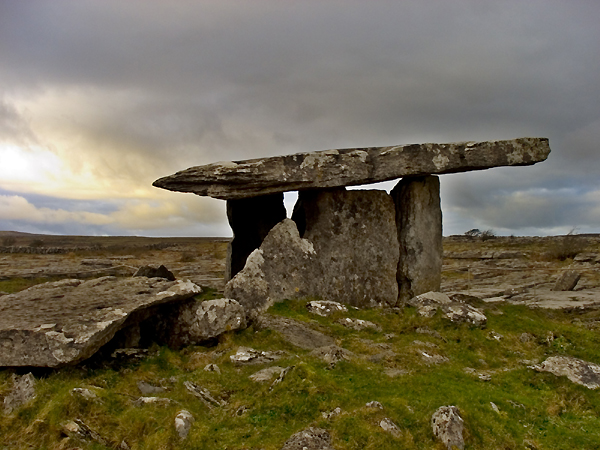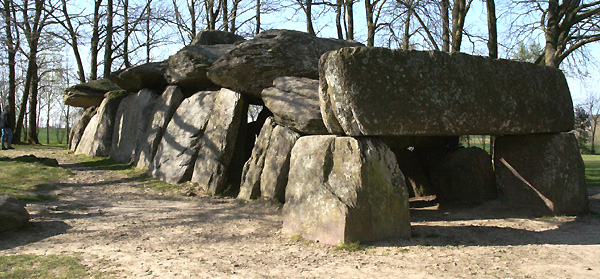Figure above:
Dolmen of Poulnabrone (Ireland) dating from 4,000 to 3,000 B.C. The
dolmens are megalithic tombs, consisting of two or more upright stones
supporting an horizontal slab, often containing collective burials.
In some of the tombs, more than 350 skeletons have been discovered:
the presence of a great number of human remains suggest that these monuments
were depositories and periodically utilized for communal ceremonies
held in honor of the dead. It seems that the dead were venerated not
as single personalities but rather as a collective entity, comprising
all those who had left the world of the living.
[Image: http://commons.wikimedia.org/wiki/File:Poulnabrone_dolmen-SteveFE.jpg]
Figure
below:
Megalithic
gallery grave known as La Roche-aux-fées (the Rock of the Fairies),
located in the municipality of Essé (Brittany, France). The gallery
graves or passage graves represent a monumental development of the dolmen
type, the one represented in the picture achieves the length of about
20 meters. The main axis of the monument points to the rising of the
sun at the winter solstice.
[Image: http://commons.wikimedia.org/wiki/File:LaRocheAuxFees_Dolmen_2_20070408.jpg]



